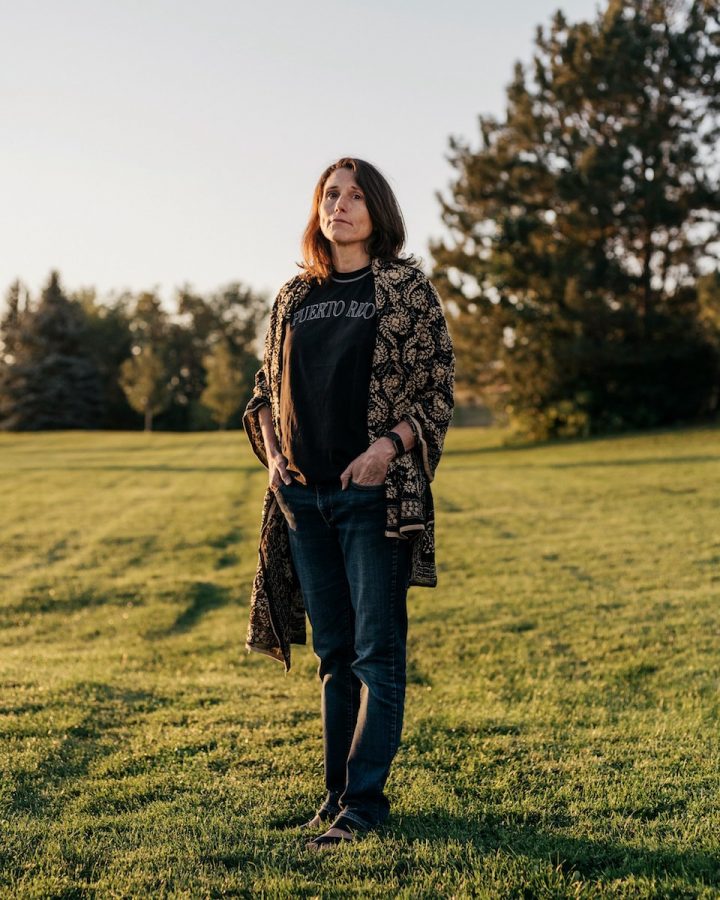Why we should still care about Deborah Ramirez
How news is still relevant after it becomes “old news”
I think it’s safe to say there’s a lot going on in the past couple of days. Between the CEO of Juul stepping down, the tornado in Elk Mound and the release of President Trump’s phone conversation with Ukranian president Volodymyr Zelensky, which led to House Democrats calling for Trump’s impeachment, journalists across the nation have a lot to write about.
But this is all going to be old news next week. We’re going to forget all of this until it comes up again, just like we forgot the news of last week: the General Motors strike, Purdue Pharma filing for bankruptcy and calls for Supreme Court Justice Brett Kavanaugh’s impeachment.
To be honest, I had to look up what happened last week. It’s human nature. We forget what isn’t immediately important to us.
Brett Kavanaugh’s confirmation hearings were nearly a year ago. We stopped caring about him.
As someone with chronic pain, Purdue Pharma — the maker of OxyContin and the drug company accused of fueling the opioid epidemic — filing for bankruptcy should be a big deal to me. It affects me — but not immediately, so I forgot.
What I didn’t forget — what many women across America did not forget — is The New York Times’ story about Deborah Ramirez’s encounter with Brett Kavanaugh in her time at Yale University.
According to the National Sexual Violence Resource Center, one in three women and one in six men in the US will experience some form of contact sexual violence in their lifetime, and over 90 percent of college sexual assault victims do not report the incident. UW-Eau Claire Police Department’s Annual Security Report states there were five on-campus forcible sexual offenses in 2017.
Both Ramirez and Christine Blasey Ford have given accounts alleging Kavanaugh assaulted them, and I believe both of them, as I feel many other women do.
The world as I knew it stopped last September as I walked to class, listening to Ford testify. Her words were clinical, but the story she was telling is the story of nearly every woman I know.
The Rape, Assault and Incest National Network reported a 147 percent increase of traffic to the National Sexual Assault Hotline the day of the Kavanaugh hearings.
When Ramirez’s story came out Sept. 14 of this year, my world stopped again. Her tale of college and assault and not being believed by authority is a tale so many young women feel. Ramirez gave the FBI 25 names of people to corroborate her story, and the FBI did not contact any of them.
This, unfortunately, is the case for many instances of assault.
Chanel Miller, who, until earlier this month, we knew only as Emily Doe in the Brock Turner sexual assault case, has been criticized by Turner’s father for ruining Turner’s life for “20 minutes of action.” Turner received six months in jail for the assault, while Miller said she had to piece together the memories from police reports and newspapers. She suffered panic attacks, dissociation and “exploding with rage,” according to The New York Times.
We all know Brock Turner’s name. We all know Brett Kavanaugh’s name. We all know Harvey Weinstein’s and Donald Trump’s and Jeffrey Epstein’s names. We will call them athletes, politicians, businessmen and Supreme Court Justices.
We are able to see them as people outside of the things they’ve been alleged or convicted of. We read the headlines and forget.
But for the one in three, these men are much more than just an athlete or a Justice. They are a reminder.
If you or a loved one has been impacted by recent traumatic events, please contact University Counseling Services here, or call the RAINN helpline at (800) 565-HOPE.
Kelley can be reached at kelleybm6766@uwec.edu.

Bridget Kelley is a fourth-year journalism student. Bridget enjoys hanging out with babies, coffee and oxford commas. If anyone has any gluten-free food suggestions, Bridget's inbox is open.


